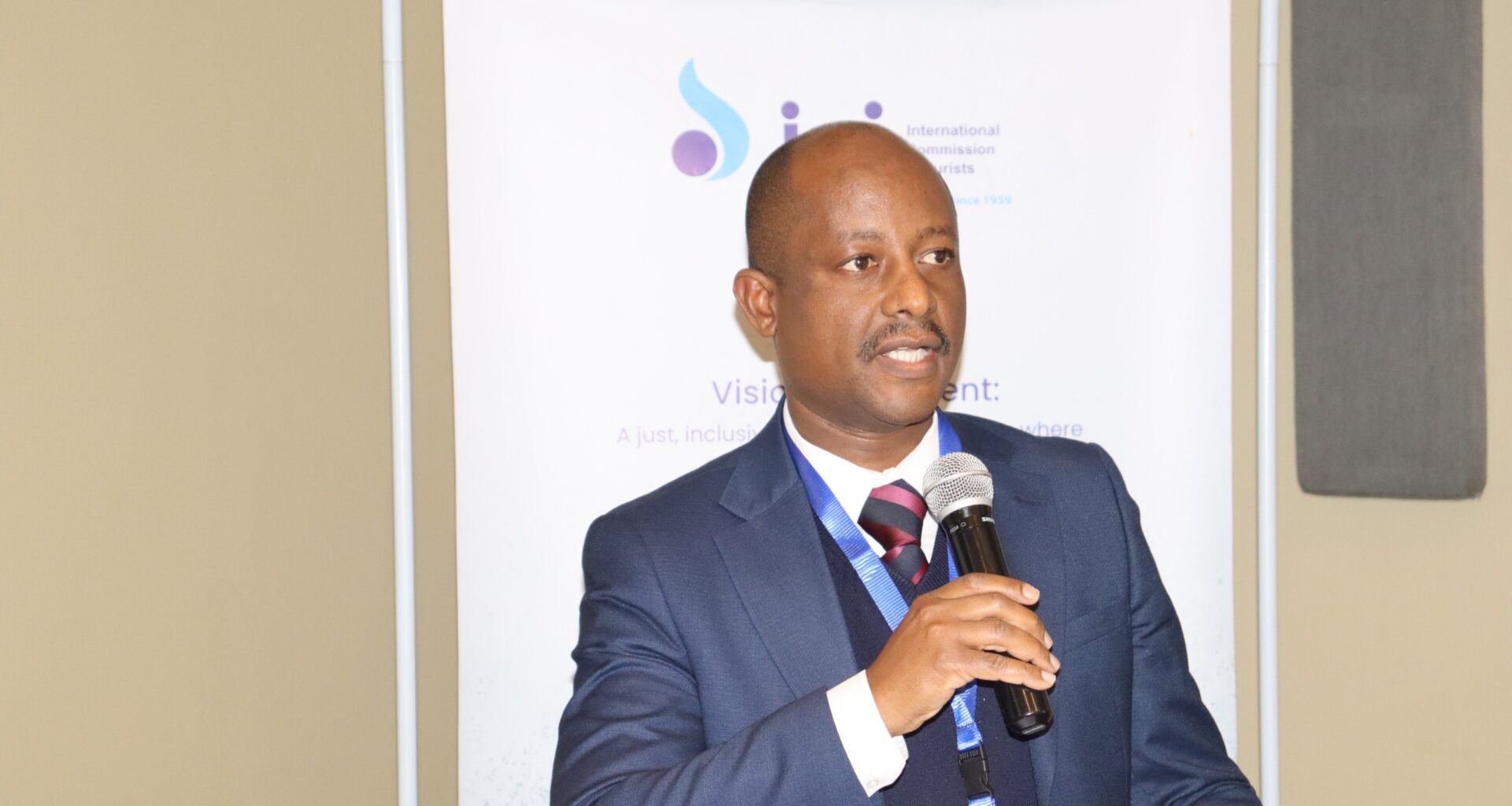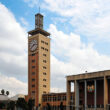NAIROBI, Kenya – The Africa Litigation Surgery Conference kicked off in earnest with delegates from across the continent converging in Kenya’s capital Nairobi.
Under the theme, pushing back against authoritarian regimes, the conference provides a unique and enlightening experience on how Public Interest Litigation (PIL) can be used to resist and counteract authoritarian regimes across the continent.
ICJ Kenya chairperson Protas Saende, who officially opened the conference noted that the convergence was an inspiring gathering of thought leaders, activists, and legal experts dedicated to pushing back against authoritarianism.
“We have assembled an esteemed panel of expert jurists from across Africa, making this three-day event exceptional. The delegates in this room represent all facets of the legal and human rights space, from academia to legal practice and civil society,” said Saende who further said,”We are privileged to have with us legal titans who have been challenging authoritarian regimes for decades, both in the streets and the courtroom. I hope this conference acts as a teaching and learning space where we can learn from each other, encourage one another, and form a spirit of camaraderie and friendship beyond borders.”
The Rise of Authoritarianism in Africa
Authoritarian rule is the antithesis of democracy. Not too long ago, the majority of Africa lived under authoritarian regimes where one-party states and military regimes dominated the continent. This was peak authoritarianism, with most democratic institutions either eradicated or eroded to their knees.
This led to the third wave of democratization in Africa in the 1990s, which gave rise to multi-party politics, regular free and fair elections, and an era of significant constitutional reforms. Despite these gains, the African continent has seen an increase in authoritarian regimes in the recent decade, posing significant challenges to human rights, democracy, and the rule of law.
These threats to democracy include the extension of presidential terms, manipulation of election processes, undermining the separation of powers, and threats to civil societies.
In response to these challenges, legal professionals have increasingly turned to public interest litigation as a powerful tool for advocacy and accountability. Public interest litigation plays a crucial role in holding governments accountable, protecting human rights, and advancing democratic principles.
Public Interest Litigation: A Tool for Change
“Public interest litigation has long been a formidable tool for advocacy, enabling the pursuit of justice and the reinforcement of human rights. As mentioned earlier, the African continent has witnessed an alarming rise in authoritarian regimes that threaten the democratic fabric and the rule of law,” said Saende.
These regimes often undermine the independence of critical institutions such as the judiciary, parliament, media, and civil society, leading to a ripple effect that compromises the freedoms and rights of the people.
Public Interest Litigation (PIL) as a legal mechanism addresses issues of significant importance to the broader community, large sections of the public, or marginalized minorities. As its name suggests, PIL involves court actions aimed at achieving remedies for the greater public good rather than solely focusing on the interests of individual litigants.
The outcomes of PIL cases are particularly significant, as they have the potential to impact not only the litigants themselves but also a wider segment of society. PIL cases often result in legal precedents that can alter existing laws, challenge constitutionality, and reinforce or protect the rights of various groups within society.
Impact of Public Interest Litigation
“What then can public interest litigation achieve? There are three hypotheses about the impact of PIL. The first posits that PIL improves access to justice for marginalized and vulnerable communities. The second suggests that PIL develops the overall state of legal protection in a country by eliminating bad laws and fostering legal review. Thirdly, PIL raises awareness and debate about particular issues of general public concern while also helping to reduce political tension and resolve social conflict.”
PIL is a critical tool for testing, challenging, and shaping the law, policy, and society at large. As Mahatma Gandhi once said, “The true measure of any society can be found in how it treats its most vulnerable members.” It is through PIL that we can ensure our societies measure up to this ideal.
“The road ahead is challenging, but with perseverance, collaboration, and strategic action, we can make significant strides in combating authoritarianism.” affirmed Saende. who further said, “I urge all delegates to engage fully, share their experiences, and collaborate towards developing actionable strategies. Together, we can uphold the principles of justice, democracy, and human rights across Africa.”







